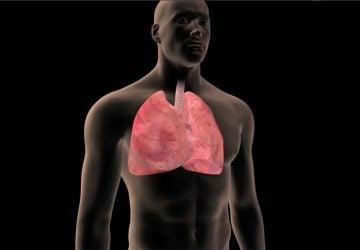- Published on
Finding Your Way Through the Emotional Journey After Lung Cancer
Finding Your Way Through the Emotional Journey After Lung Cancer
Battling lung cancer involves more than overcoming physical ailments; it's deeply connected with a range of emotional responses. The journey includes emotional challenges from the point of diagnosis, through to treatment, and even after treatment has concluded. Identifying, confronting, and mastering these emotional hurdles are crucial for a person's overall health and recuperation.

The emotional toll of tackling a significant health condition like lung cancer covers a broad spectrum. A person might experience emotions such as disbelief, anger, and denial, but also feelings of acceptance, hope, and even gratitude can surface. As a patient progresses through different stages of cancer, it is usual for their emotional state to shift. Successfully handling these changing emotions can tremendously enhance someone's life and facilitate their healing journey. Acknowledging One's Diagnosis The first crucial step is to accept the reality of the situation. Initial reactions might include asking "Why me?" and experiencing feelings of anger regarding the diagnosis. Holding onto these feelings long-term can obstruct the healing journey. Accepting the diagnosis is crucial for moving forward. Importally, acceptance does not equate to giving up but rather to recognizing what is happening and seeking out strategies for coping and flourishing. Importance of Communication Suppressing emotions or pretending to be unshaken might seem easier initially, but it has the potential to cause harm over time. Openly conversing with close ones about fears and aspirations can have a healing effect. Even if answers are not forthcoming, expressing emotions can provide comfort. Seeking Professional Assistance Professional guidance is a cornerstone of navigating the emotional aspects of cancer. Psycho-oncology professionals are skilled in assisting cancer patients through the emotional and psychological aspects of their condition, offering coping techniques, therapy, and a confidential setting for emotional expression. Finding Solace in Activities Indulging in activities that promote serenity is incredibly helpful. This could be engaging in mindfulness practice, yoga, or enjoying nature. Choosing activities that are personally fulfilling and foster tranquility can serve as reliable sources of comfort during emotionally difficult periods. Creating a Support Network Having a supportive community is key to emotional health. This community can include family, friends, or support groups. Their understanding can reduce feelings of isolation. Support groups in particular provide the opportunity to connect with others who have gone through similar experiences and can share valuable advice. Navigating the Emotional Journey The emotional path one takes following a lung cancer diagnosis is complex, with many highs and lows. It's essential to recognize the importance of seeking help, allowing oneself to feel various emotions, and placing a priority on mental health. With appropriate support, resources, and attitude, one can manage this journey and emerge with enhanced strength and fortitude.